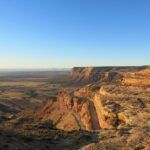It is now two and a half minutes to midnight
By Bulletin Staff | January 26, 2017
DOOMSDAY CLOCK MOVES AHEAD:
“Words Matter”: Board Marks 70th Anniversary of Iconic Clock By Expressing Concern About “Unsettling” and “Ill-Considered” Statements of President Trump on Nuclear Weapons and Climate Change; Developments in North Korea, Russia, India and Pakistan Also Highlighted.
WASHINGTON, D.C. – January 26, 2017 – It is now two and a half minutes to midnight. For the first time in the 70-year history of the Doomsday Clock, the Bulletin of the Atomic Scientists’ Science and Security Board has moved the hands of the iconic clock 30 seconds closer to midnight. In another first, the Board has decided to act, in part, based on the words of a single person: Donald Trump, the new President of the United States.
The decision to move the hands of the Doomsday Clock is made by the Science and Security Board of the Bulletin of the Atomic Scientistsin consultation with the Bulletin’s Board of Sponsors, which includes 15 Nobel Laureates. The Science and Security Board’s full statement about the Clock is available online.
In January 2016, the Doomsday Clock’s minute hand did not change, remaining at three minutes before midnight. The Clock was changed in 2015 from five to three minutes to midnight, the closest it had been since the arms race of the 1980s.
In the statement about the Doomsday Clock, the Bulletin’s Science and Security Board notes: “Over the course of 2016, the global security landscape darkened as the international community failed to come effectively to grips with humanity’s most pressing existential threats, nuclear weapons and climate change … This already-threatening world situation was the backdrop for a rise in strident nationalism worldwide in 2016, including in a US presidential campaign during which the eventual victor, Donald Trump, made disturbing comments about the use and proliferation of nuclear weapons and expressed disbelief in the overwhelming scientific consensus on climate change …The board’s decision to move the clock less than a full minute — something it has never before done — reflects a simple reality: As this statement is issued, Donald Trump has been the US president only a matter of days …”
The statement continues: “Just the same, words matter, and President Trump has had plenty to say over the last year. Both his statements and his actions as President-elect have broken with historical precedent in unsettling ways. He has made ill-considered comments about expanding the US nuclear arsenal. He has shown a troubling propensity to discount or outright reject expert advice related to international security, including the conclusions of intelligence experts. And his nominees to head the Energy Department, and the Environmental Protection Agency dispute the basics of climate science. In short, even though he has just now taken office, the president’s intemperate statements, lack of openness to expert advice, and questionable cabinet nominations have already made a bad international security situation worse.”
In addition to addressing the statements made by President Trump, the Board also expressed concern about the greater global context of nuclear and climate issues:
· On nuclear issues, the Board noted: “The United States and Russia—which together possess more than 90 percent of the world’s nuclear weapons—remained at odds in a variety of theaters, from Syria to Ukraine to the borders of NATO; both countries continued wide-ranging modernizations of their nuclear forces, and serious arms control negotiations were nowhere to be seen.North Korea conducted its fourth and fifth underground nuclear tests and gave every indication it would continue to develop nuclear weapons delivery capabilities. Threats of nuclear warfare hung in the background as Pakistan and India faced each other warily across the Line of Control in Kashmir after militants attacked two Indian army bases.”
· In surveying the status of climate matters, the Board concluded: “The climate change outlook was somewhat less dismal (in 2016) —but only somewhat. In the wake of the landmark Paris climate accord, the nations of the world have taken some actions to combat climate change, and global carbon dioxide emissions were essentially flat in 2016, compared to the previous year. Still, they have not yet started to decrease; the world continues to warm. Keeping future temperatures at less-than-catastrophic levels requires reductions in greenhouse gas emissions far beyond those agreed to in Paris—yet little appetite for additional cuts was in evidence at the November climate conference in Marrakech.”
Rachel Bronson, executive director and publisher, Bulletin of the Atomic Scientists, said: “As we marked the 70th anniversary of the Doomsday Clock, this year’s Clock deliberations felt more urgent than usual. In addition to the existential threats posed by nuclear weapons and climate change, new global realities emerged, as trusted sources of information came under attack, fake news was on the rise, and words were used by a President-elect of the United States in cavalier and often reckless ways to address the twin threats of nuclear weapons and climate change.”
Lawrence Krauss, chair, Bulletin Board of Sponsors, director, Origins Project at Arizona State University, and foundation professor, School of Earth and Space Exploration and Physics Department, Arizona State University, said: “Wise men and women have said that public policy is never made in the absence of politics. But in this unusual political year, we offer a corollary: Good policy takes account of politics but is never made in the absence of expertise. Facts are indeed stubborn things, and they must be taken into account if the future of humanity is to be preserved, long term. Nuclear weapons and climate change are precisely the sort of complex existential threats that cannot be properly managed without access to and reliance on expert knowledge. In 2016, world leaders not only failed to deal adequately with those threats; they actually increased the risk of nuclear war and unchecked climate change through a variety of provocative statements and actions, including careless rhetoric about the use of nuclear weapons and the wanton defiance of scientific evidence. To step further back from the brink will require leaders of vision and restraint. President Trump and President Putin can choose to act together as statesmen, or as petulant children, risking our future. We call upon all people to speak out and send a loud message to your leaders so that they do not needlessly threaten your future, and the future of your children.”
Retired Rear Admiral David Titley, Bulletin Science and Security Board; professor of practice, Pennsylvania State University Department of Meteorology, and founding director, Penn State’s Center for Solutions to Weather and Climate Risk, said: “Climate change should not be a partisan issue. The well-established physics of Earth’s carbon cycle is neither liberal nor conservative in character. The planet will continue to warm to ultimately dangerous levels so long as carbon dioxide continues to be pumped into the atmosphere— irrespective of political leadership. The current political situation in the United States is of particular concern. The Trump administration needs to state clearly and unequivocally that it accepts climate change, caused by human activity, as reality. No problem can be solved unless its existence is first recognized. There are no ‘alternative facts’ here”.
About the Bulletin of the Atomic Scientists
The Bulletin of the Atomic Scientists engages science leaders, policy makers, and the interested public on topics of nuclear weapons and disarmament, the changing energy landscape, climate change, and emerging technologies. With smart, vigorous prose, multimedia presentations, and information graphics, the Bulletin puts issues and events into context and provides fact-based debates and assessments. For 70 years, the Bulletin has bridged the technology divide between scientific research, foreign policy and public engagement. See more at: https://thebulletin.org
Founded in 1945 by University of Chicago scientists who had helped develop the first atomic weapons in the Manhattan Project, the Bulletin of the Atomic Scientists created the Doomsday Clock two years later, using the imagery of apocalypse (midnight) and the contemporary idiom of nuclear explosion (countdown to zero) to convey threats to humanity and the planet.The decision to move (or to leave in place) the minute hand of the Doomsday Clock is made every year by the Bulletin’s Science and Security Board in consultation with its Board of Sponsors, which includes 15 Nobel laureates. The Clock has become a universally recognized indicator of the world’s vulnerability to catastrophe from nuclear weapons, climate change, and new technologies emerging in other domains.
CONTACTS:Patrick Mitchell, (703) 276-3266 and [email protected]; or Alex Frank, (703) 276-3264 and [email protected]
EDITOR’S NOTE: View today’s news event at http://clock.thebulletin.org/.
Together, we make the world safer.
The Bulletin elevates expert voices above the noise. But as an independent nonprofit organization, our operations depend on the support of readers like you. Help us continue to deliver quality journalism that holds leaders accountable. Your support of our work at any level is important. In return, we promise our coverage will be understandable, influential, vigilant, solution-oriented, and fair-minded. Together we can make a difference.














